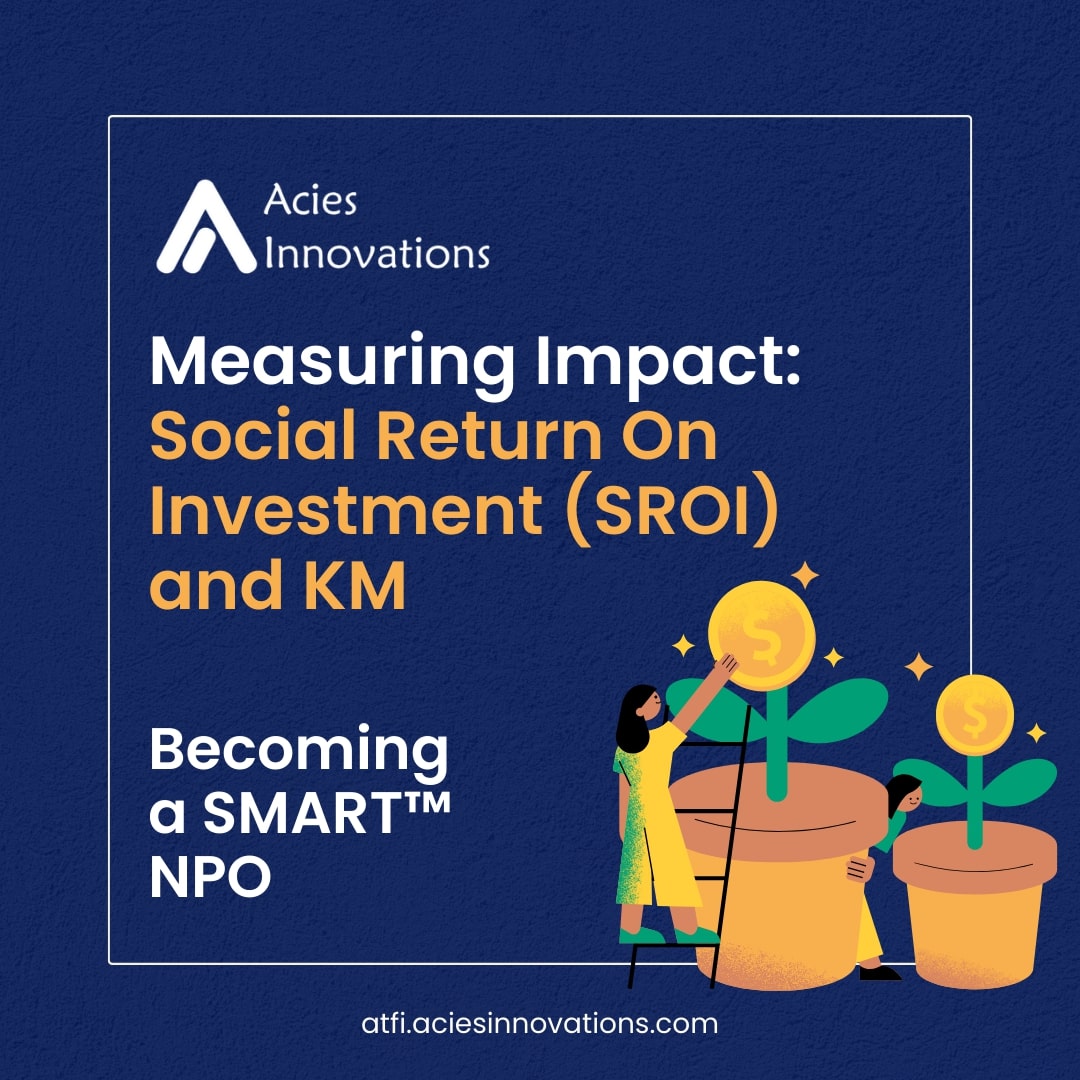
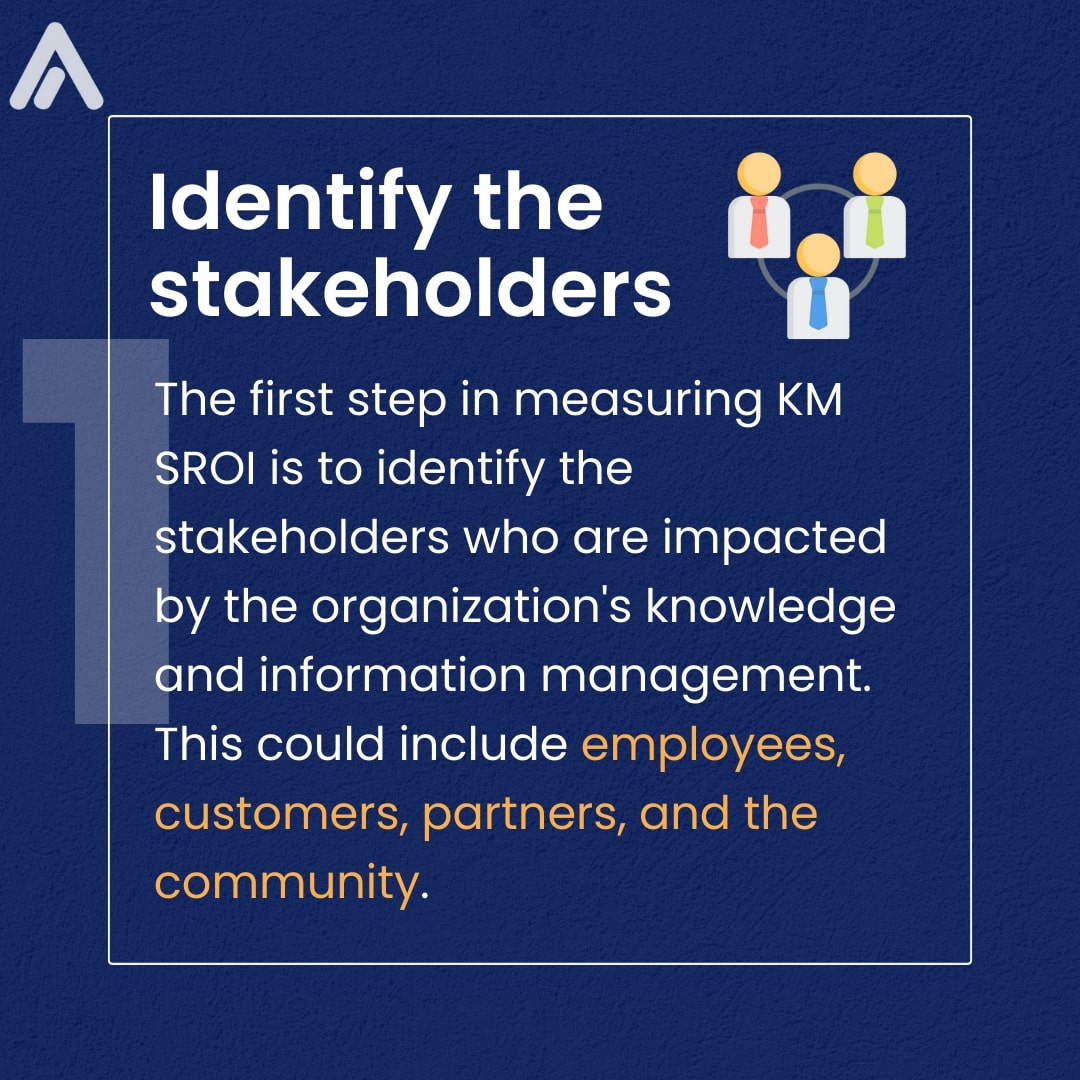
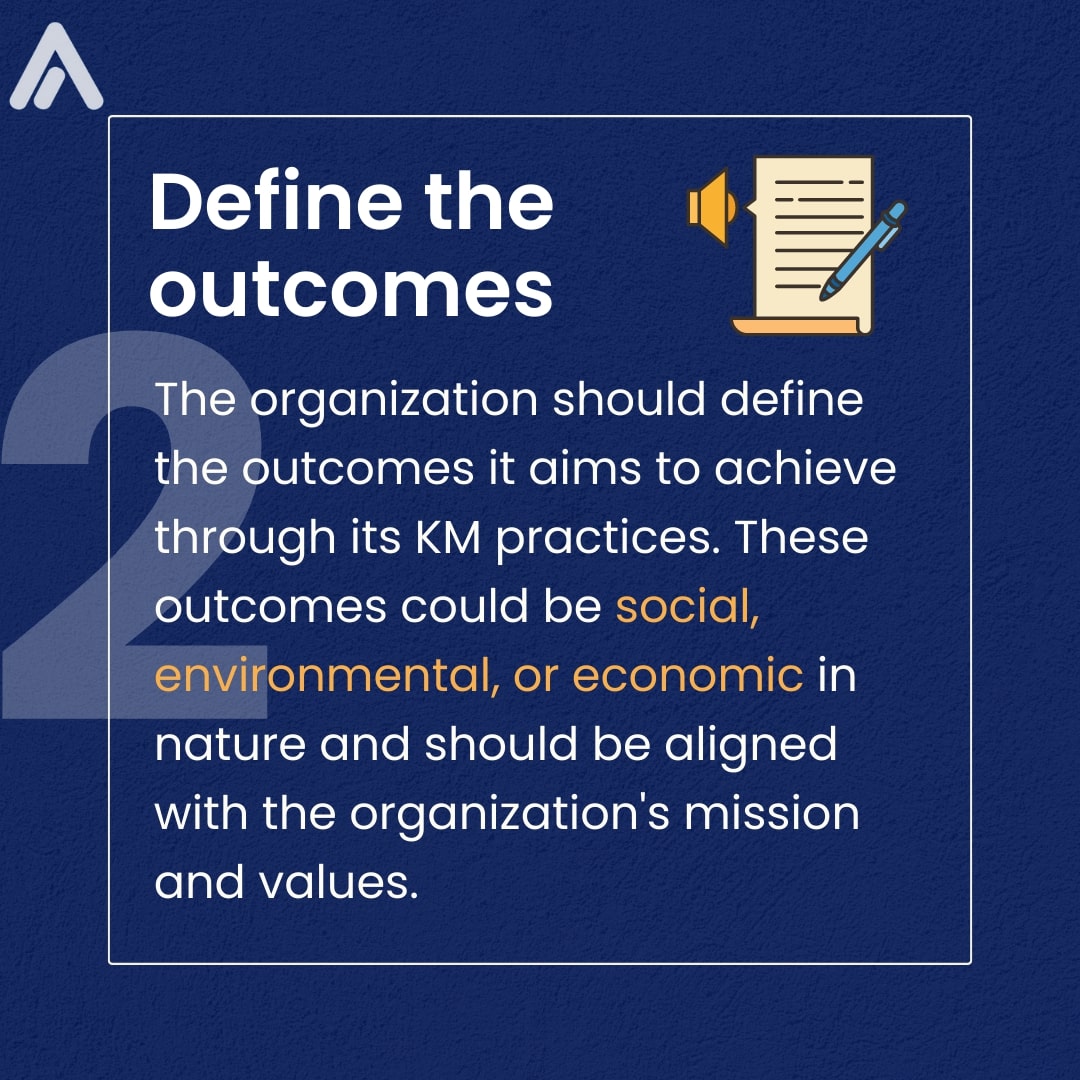
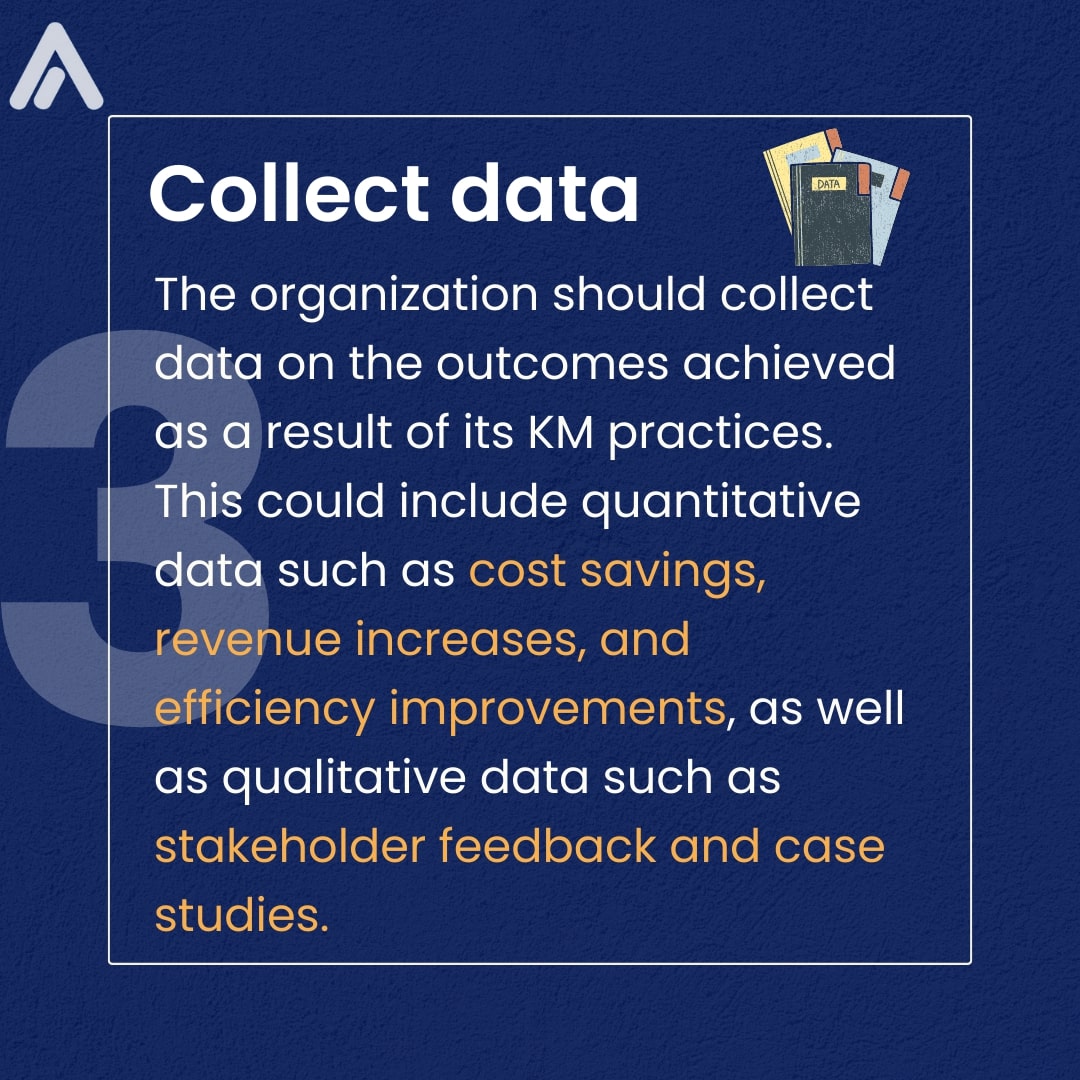
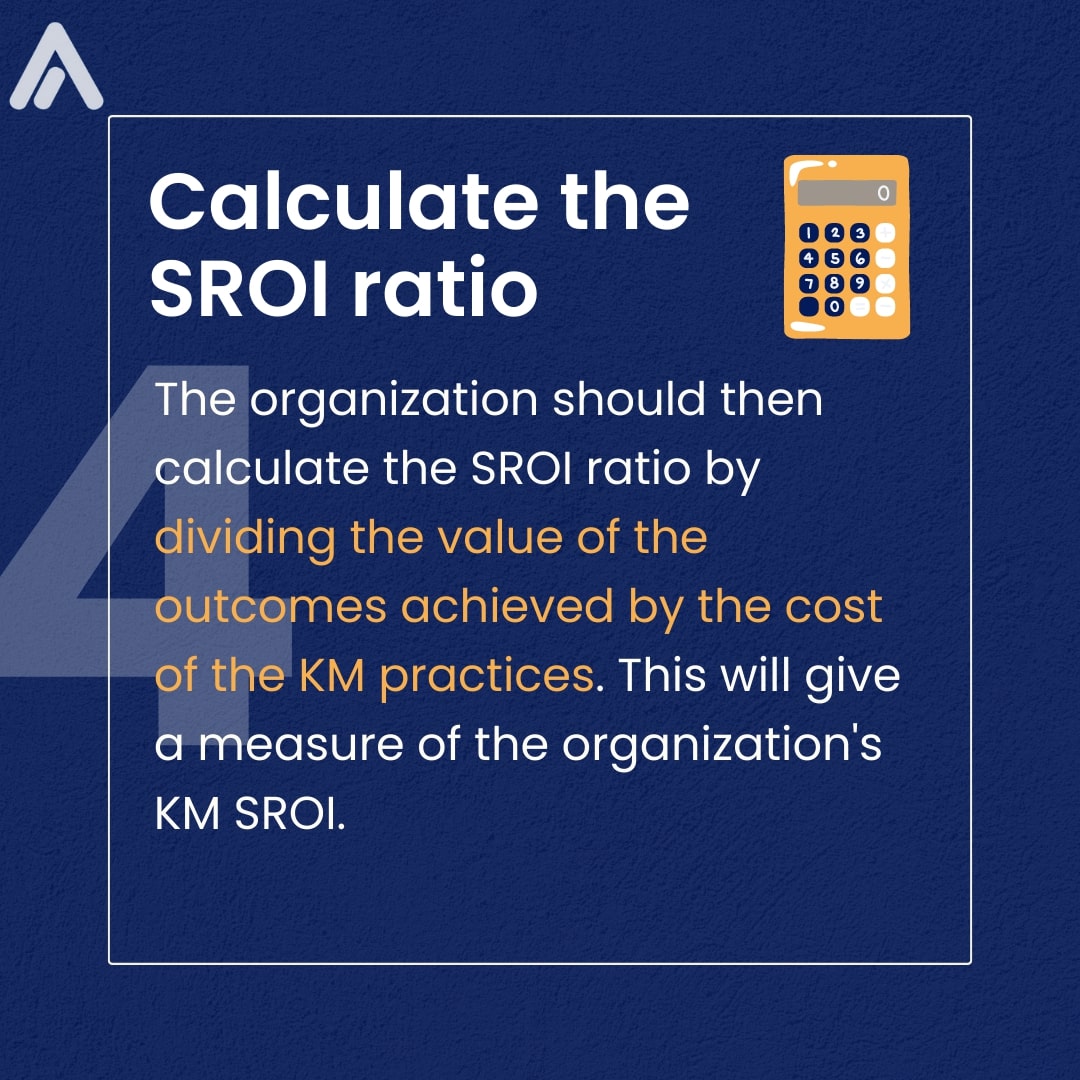
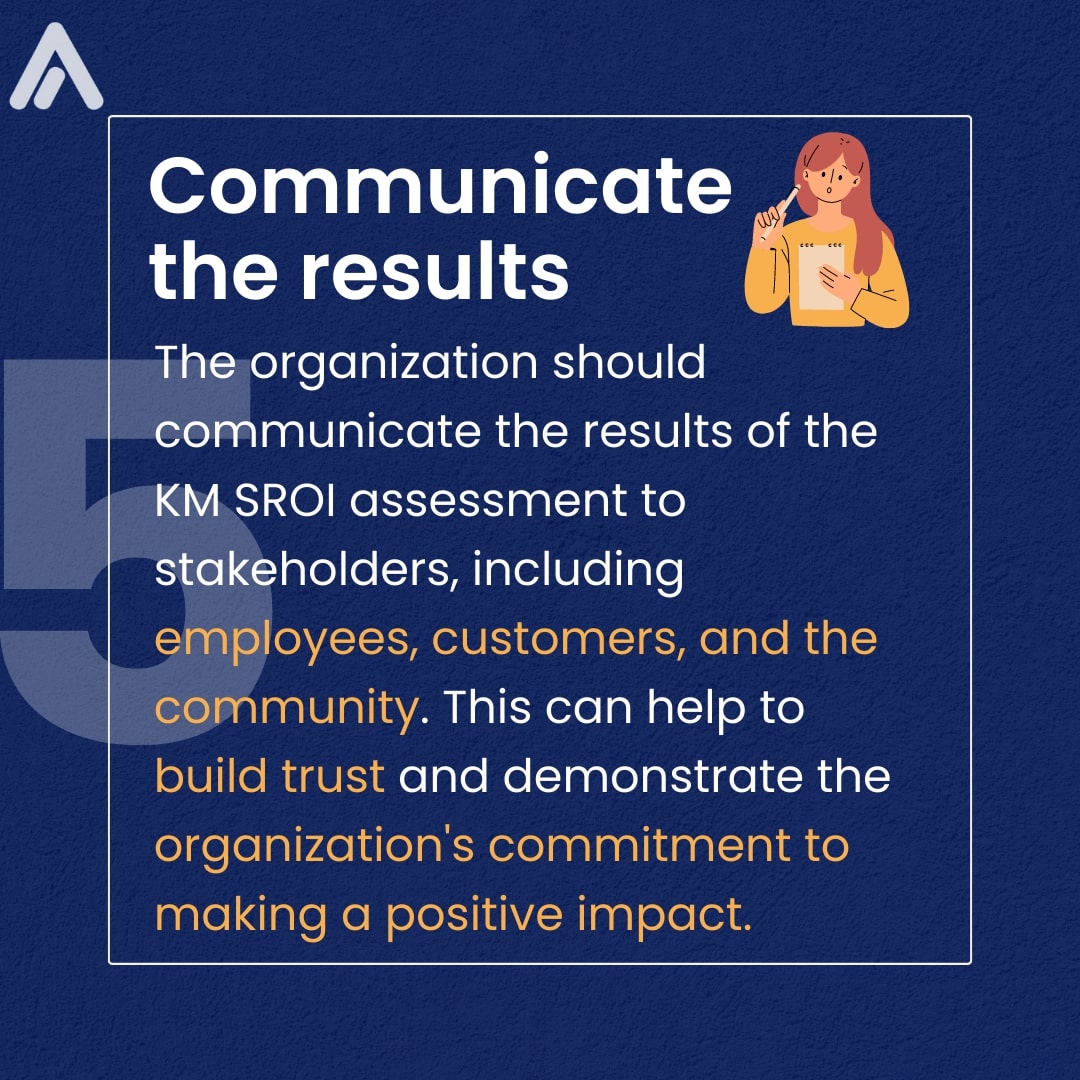
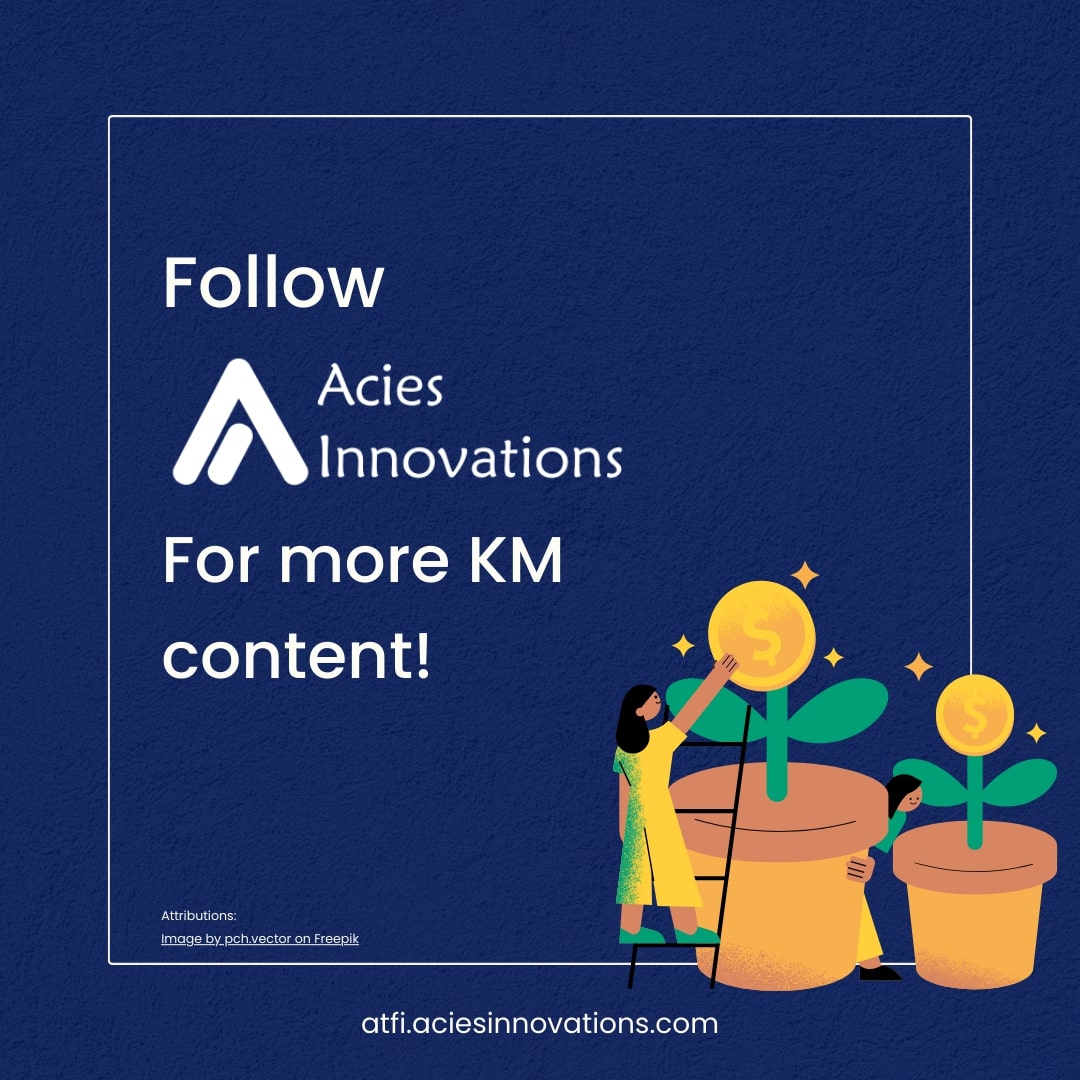
Social Return On Investment (SROI) and KM
By Admin Aril 1, 2023Social return on investment (SROI) is a framework that measures the social, environmental, and economic value created by an organization or project. It aims to provide a more holistic assessment of an organization's impact, beyond traditional financial metrics. By effectively managing knowledge and information, an organization can make more informed decisions that align with its mission and values and lead to a greater social return on investment.
An organization that uses KM to gather and analyze data on the impact of its programs can use this information to identify areas for improvement and optimize its operations. This can ultimately lead to a higher SROI by increasing the organization's social and economic value and impact.
There are several methods for measuring an organization's knowledge management (KM) social return on investment (SROI):
1. Identify the stakeholders
The first step in measuring KM SROI is to identify the stakeholders who are impacted by the organization's knowledge and information management. This could include employees, customers, partners, and the community.2. Define the outcomes
Next, the organization should define the outcomes it aims to achieve through its KM practices. These outcomes could be social, environmental, or economic in nature and should be aligned with the organization's mission and values.3. Collect data
The organization should collect data on the outcomes achieved as a result of its KM practices. This could include quantitative data such as cost savings, revenue increases, and efficiency improvements, as well as qualitative data such as stakeholder feedback and case studies.4. Calculate the SROI ratio
The organization should then calculate the SROI ratio by dividing the value of the outcomes achieved by the cost of the KM practices. This will give a measure of the organization's KM SROI.5. Communicate the results
The organization should communicate the results of the KM SROI assessment to stakeholders, including employees, customers, and the community. This can help to build trust and demonstrate the organization's commitment to making a positive impact.
Measuring KM SROI can be a complex process, but it is an important way for organizations to assess and improve their impact and effectiveness. KM SROI is not a commonly reported metric. However, here are some examples of organizations that have demonstrated a strong commitment to KM and are likely to have high KM SROI ratios:
1. Microsoft
Microsoft has invested heavily in KM and has implemented various initiatives to facilitate the sharing of knowledge and information within the organization. This includes the use of collaboration and communication platforms, as well as training and development programs for employees.2. IBM
IBM has a long history of investing in KM and has implemented various initiatives to encourage the sharing of knowledge and expertise within the organization. This includes the use of social media and collaboration platforms, as well as training and development programs for employees.3. Accenture
Accenture has implemented various KM initiatives to facilitate the sharing of knowledge and expertise within the organization. This includes the use of collaboration and communication platforms, as well as training and development programs for employees.4. Deloitte
Deloitte has a strong commitment to KM and has implemented various initiatives to encourage the sharing of knowledge and expertise within the organization. This includes the use of collaboration and communication platforms, as well as training and development programs for employees.
In summary, SROI and KM are closely related in that both aim to measure and improve the impact and effectiveness of an organization. By effectively managing its knowledge and information, an organization can optimize its operations and achieve a greater social return on investment.